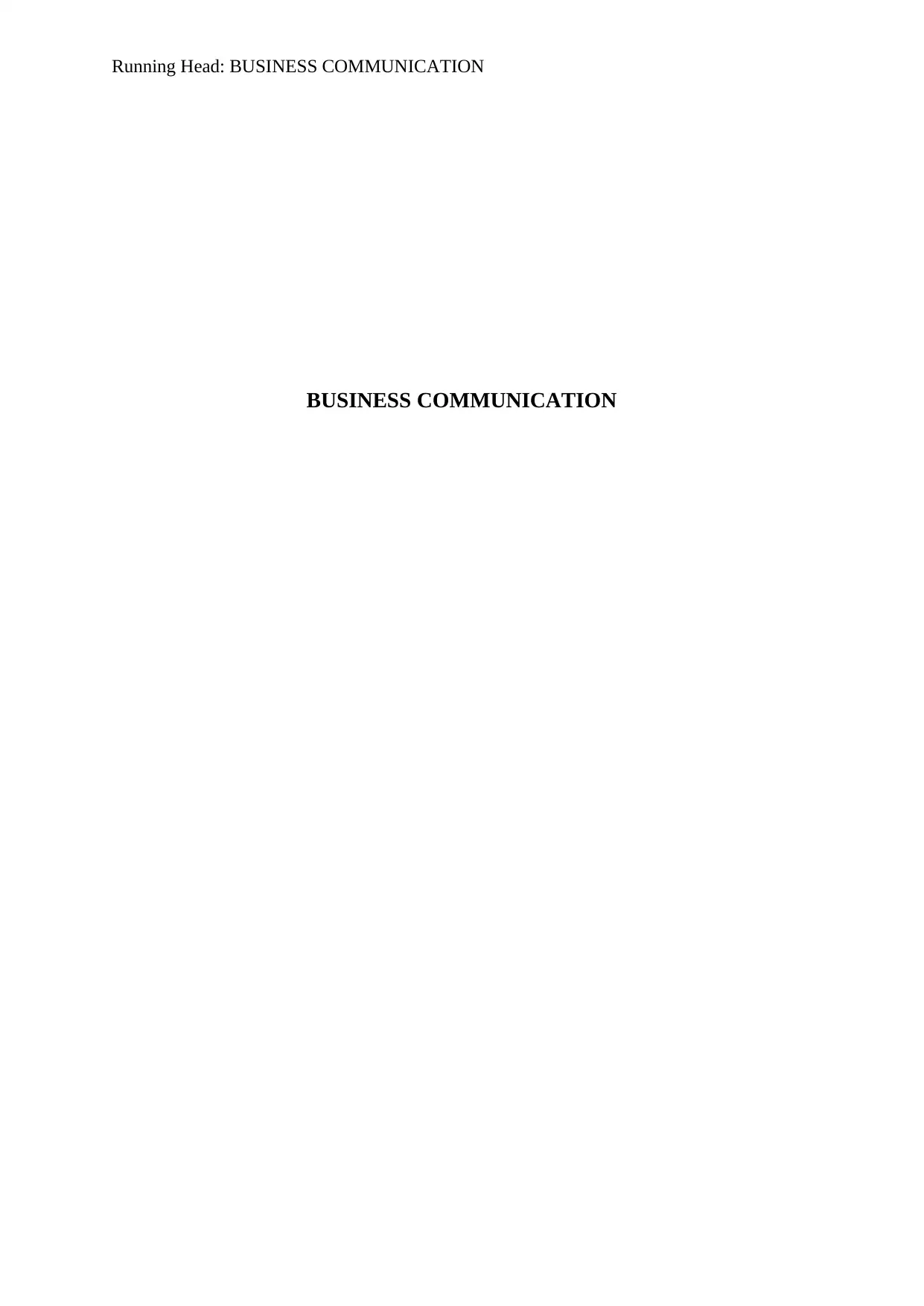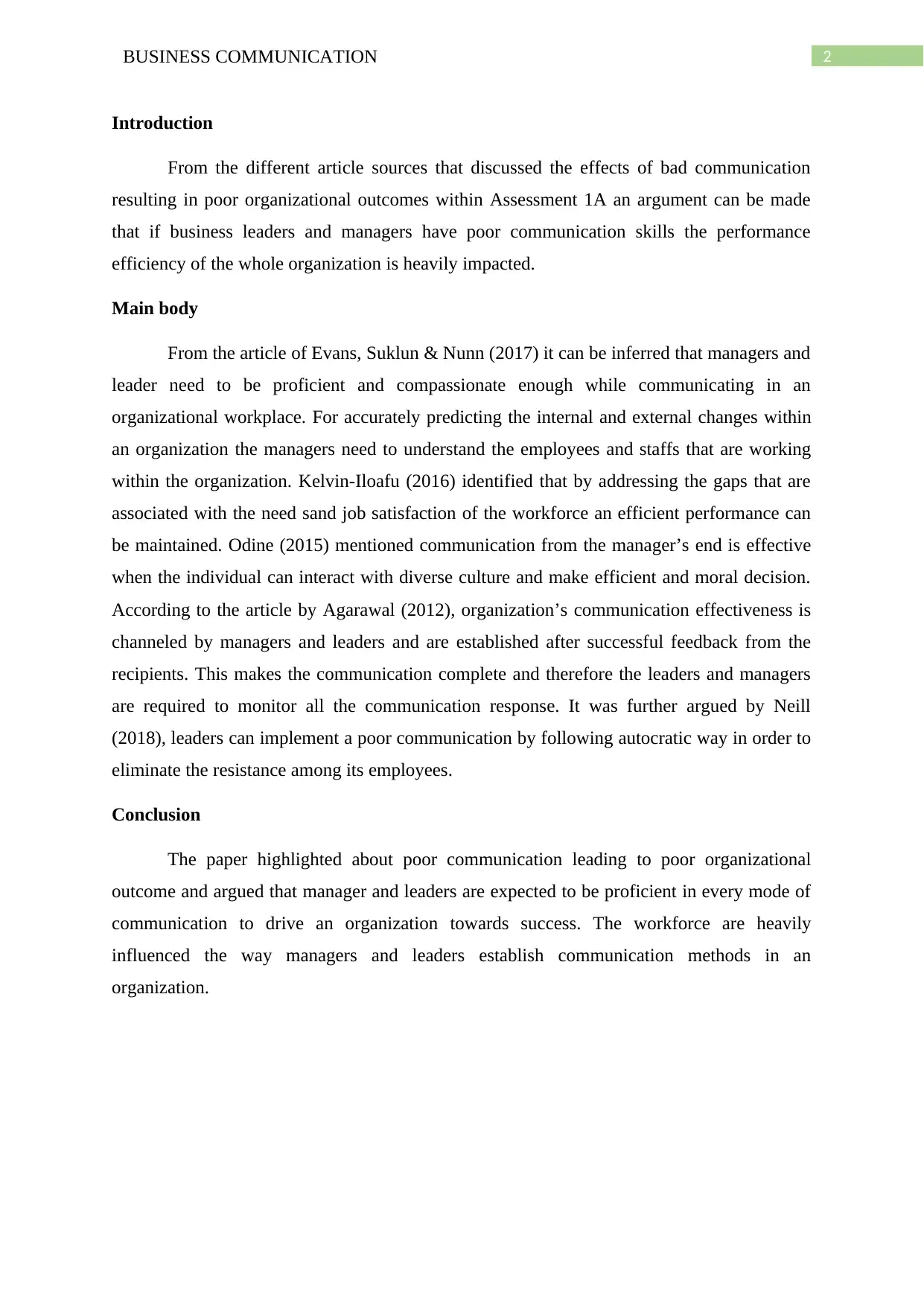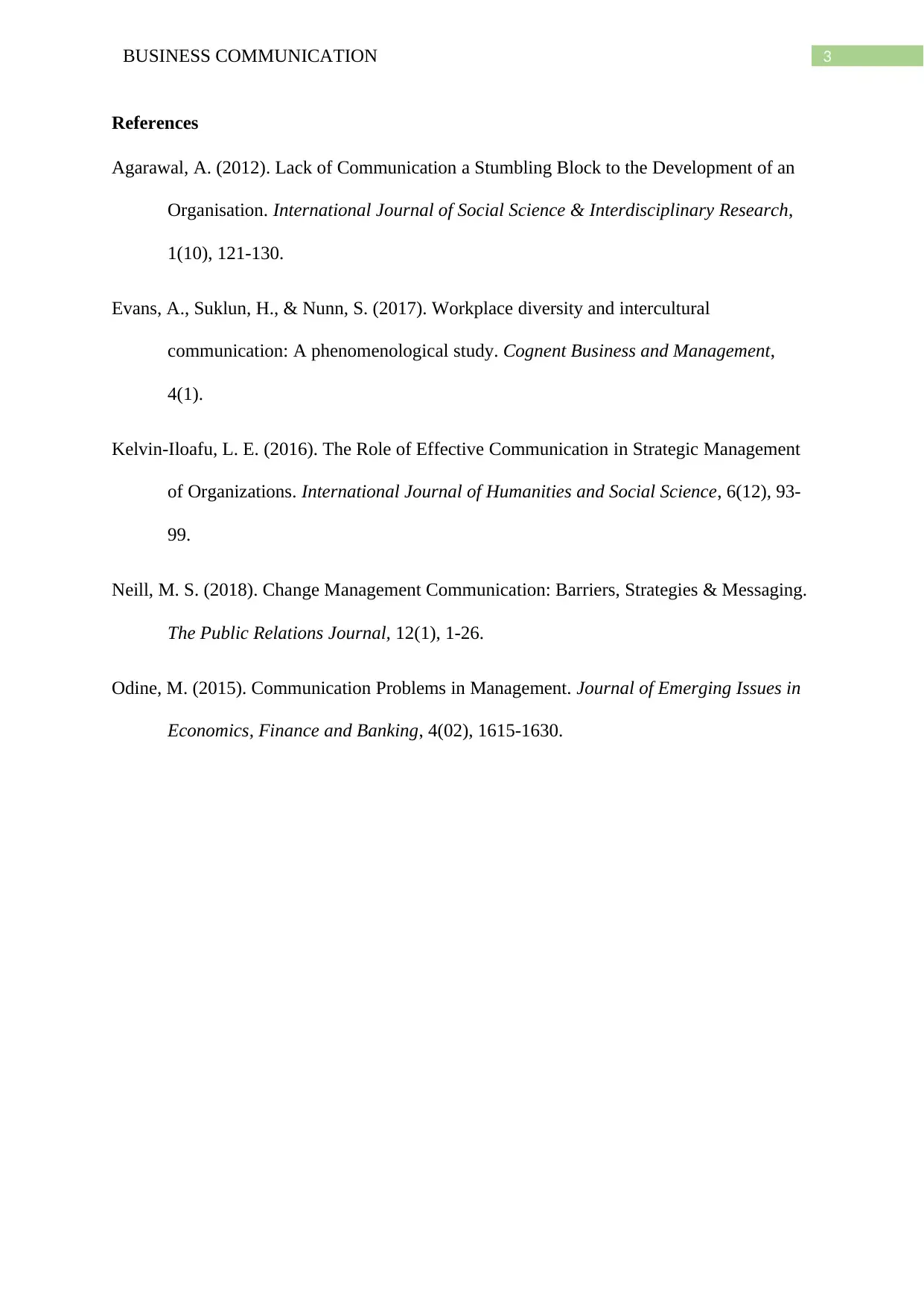MGT502 Business Communication: Argument on Poor Communication Outcomes
VerifiedAdded on 2023/03/21
|3
|482
|26
Essay
AI Summary
This essay examines the detrimental effects of poor communication on organizational outcomes, arguing that effective communication skills are crucial for business leaders and managers. Drawing from various articles, the essay highlights the importance of proficiency and compassion in communication, understanding employee needs, and adapting to diverse cultures. It emphasizes that managers and leaders significantly influence an organization's communication effectiveness, and monitoring communication responses is essential. The essay concludes that proficient communication is necessary to steer an organization toward success, with workforce performance heavily reliant on the communication methods established by leaders.
1 out of 3










![[object Object]](/_next/static/media/star-bottom.7253800d.svg)